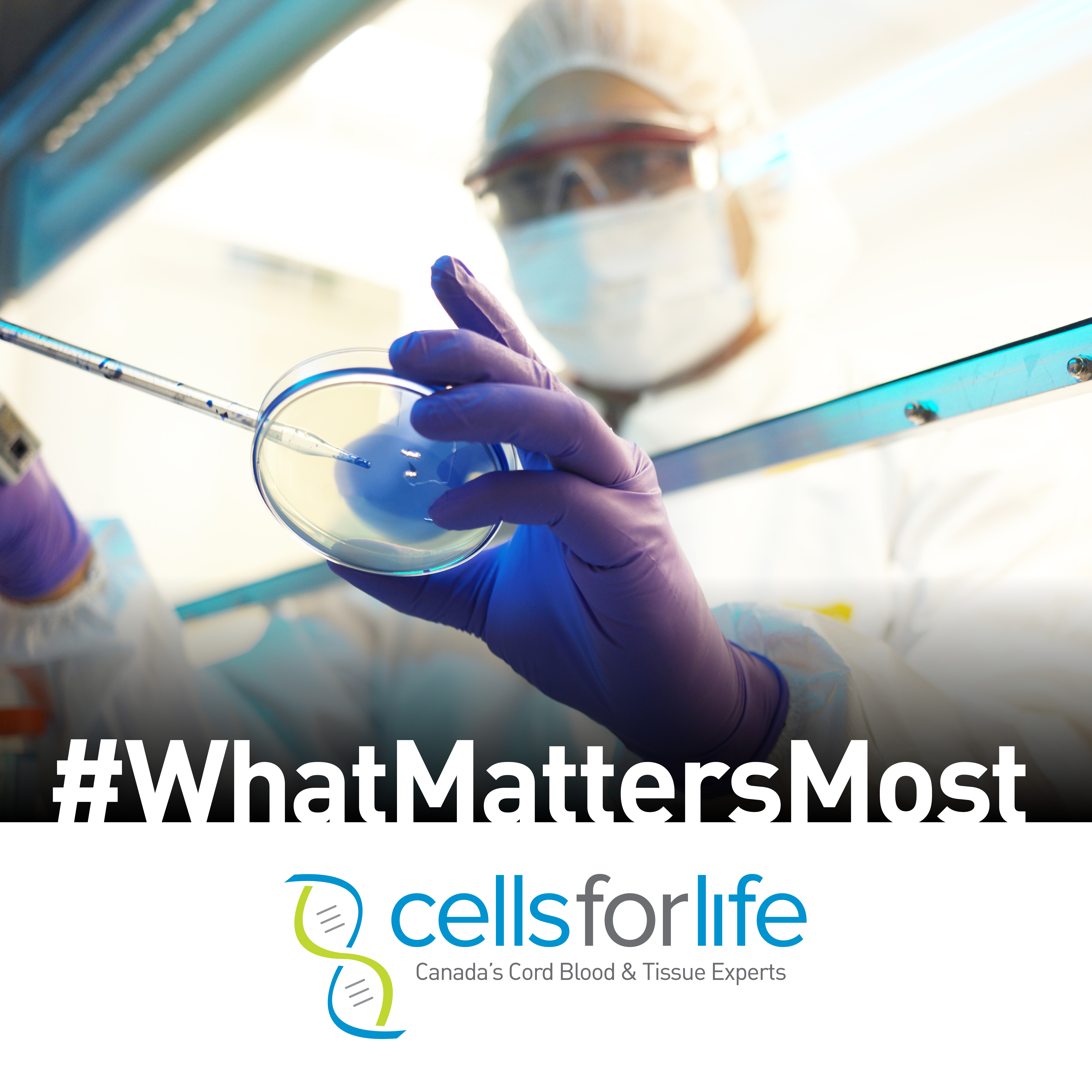Over the last 20 years, blood stem cells have been the focus of researching the potential to treat many conditions. New emerging research and clinical studies are constantly underway, investigating ways to treat more diseases.
Once cord blood and/or tissue is stored with Cells for Life, you can be eligible to take part in various clinical trials, but it is important to educate yourself about the process.
What is a clinical trial?
A clinical trial is a study conducted by investigators, primarily medical doctors, in which volunteer participants receive specific interventions. During the research method, there are two stages: “early” phase and “late” phase. Early phase trials use less samples and are focused on the safety of the product, whereas late phase trials have significantly more samples and can help prove safety and efficacy of the product.
Participating in a clinical trial
Clinical trials have standards listed in their protocol to inform eligibility of participation. Some studies require participants who have an illness or condition, while others seek healthy participants. If you are interested in participating in an open cord blood trial, Parent’s Guide to Cord Blood Foundation has opened a new search engine source, where readers are able to research all clinical trials conducting cell therapy with cord blood, world-wide. Also earlier this year, the Cord Blood Association announced the release of their official scientific journal which exhibits research articles on umbilical cord blood and tissue-based therapies, cord banking, and the use of cord blood and cord tissue in regenerative medicine. This information is vital to anyone who is interested in participating in a clinical study to find out as much as possible about successes, risks, expenses, and research being conducted.
Questions to ask:
- What is being studied?
- Why do researchers believe the intervention being tested might be effective? Why might it not be effective? Has it been tested before?
- What are the possible interventions that I might receive during the trial?
- How will it be determined which interventions I receive?
- Who will know which intervention I receive during the trial? Will I know? Will members of the research team know?
- How do the possible risks, side effects, and benefits of this trial compare with those of my current treatment?
- What will I have to do?
- What tests and procedures are involved?
- How often will I have to visit the hospital or clinic?
- Will hospitalization be required?
- How long will the study last?
- Who will pay for my participation?
- Will I be reimbursed for other expenses?
- What type of long-term follow-up care is part of this trial?
- If I benefit from the intervention, will I be allowed to continue receiving it after the trial ends?
- Will results of the study be provided to me?
- Who will oversee my medical care while I am participating in the trial?
- What are my options if I am injured during the study?
Promising Cord Blood Trials
AUTISM – A study conducted at Duke University in North Carolina, has recently been featured on Breakfast Television. Twenty-five children participated in the clinical trial to see whether a transfusion of their own cord blood could improve their condition. More than two-thirds of the participants reported improvements in their behaviour. Thus, a second clinical trial is underway. This is a double-blind, placebo-controlled trial involving 165 autistic children ages 2-8. Currently Duke University has filled all 165 spots for this study but they are working with the FDA to increase the access to the study for those children who have their own cord blood stored. Watch for it to be listed on www.clinicaltrials.gov. This study is in the early stages but we are excited to see these preliminary results. We will closely monitor results as work continues and share information with our clients through email blasts and social media communications.
Dr. Arnold R. Kriegstein, director of the stem cell center at the University of California, San Francisco, says that he hopes there will be breakthrough treatment for children with autism but that much more needs to be known before this will become a reality.
CEREBRAL PALSY – During the last decade, infusion of cord blood stem cells have been used as therapy to treat cerebral palsy. During the clinical trials, many participants claimed some functional improvement after receiving their own stem cells; we await publication of these results.
In November 2015, a new phase 1 trial started at Duke University to treat patients with cerebral palsy with their sibling’s cord blood. In March 2016, The Murdoch Children’s Research Institute has also launched a phase 1 trial using sibling cord blood, and is nationally recruiting patients between the ages of 1-11 years old.
CLEFT PALATE – Cleft lip and palate are among the most common congenital birth defects according to the CDC. These infants are diagnosed during routine ultrasound exams around 24 weeks of gestation and the repair is done after the baby’s birth.
If the cleft is large, it requires bone graft from the baby’s pelvis. However researchers at the University of Texas have developed an approach that uses cord tissue stem cells to enhance the repair. It is anticipated that clinical trials will begin within the next 12-18 months.
Other Promising Trials:
- Umbilical cord blood infusion for adult with ischemic stroke
- Engraftment of cord blood cells after chemotherapy for patients with sickle cell disease
Sources:
https://www.cnn.com/2017/04/05/health/autism-cord-blood-stem-cells-duke-study/
https://www.cb-association.org/cba-announces-official-scientific-journal
https://www.clinicaltrials.gov/ct2/about-studies/learn
https://parentsguidecordblood.org/en/news/new-search-engine-all-open-cord-blood-trials
https://parentsguidecordblood.org/en/news/sibling-cord-blood-therapy-cerebral-palsy

